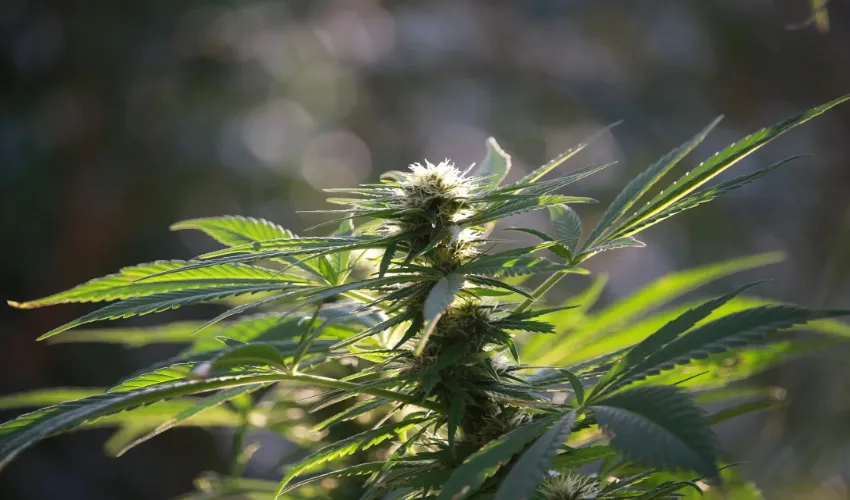The growing interest in cannabis has brought two of its primary compounds, CBD (cannabidiol) and THC (tetrahydrocannabinol), into the spotlight. Although both are found in the cannabis plant, they have distinct effects and uses. Understanding the differences between CBD and THC is essential for making informed decisions about their use, whether for medicinal purposes or recreational enjoyment.
Chemical Structure and Source
CBD and THC share a similar molecular structure, consisting of 21 carbon atoms, 30 hydrogen atoms, and 2 oxygen atoms. However, the arrangement of these atoms is what differentiates the two compounds. This slight difference in structure accounts for the contrasting effects they have on the human body.
Both CBD and THC are found in cannabis plants, but they are typically derived from different sources. THC is most abundant in marijuana, a cannabis plant bred specifically for its psychoactive properties. In contrast, CBD Flower is more commonly extracted from hemp, a variety of cannabis that contains low levels of THC (less than 0.3%) but is rich in CBD. One popular form of CBD is CBD Flower, which refers to the raw, unprocessed buds of the hemp plant that are rich in cannabidiol.
Psychoactive Effects
One of the most significant differences between CBD and THC is their psychoactive properties. THC is the compound responsible for the “high” associated with marijuana use. When consumed, THC binds to cannabinoid receptors in the brain, particularly the CB1 receptor, leading to altered perceptions, mood changes, and euphoria.
CBD, on the other hand, is non-psychoactive. It does not produce a high, even though it also interacts with the body’s endocannabinoid system. Instead of binding directly to cannabinoid receptors, CBD influences them indirectly and is thought to counteract some of the psychoactive effects of THC. This makes CBD a popular choice for individuals seeking the therapeutic benefits of cannabis without the mind-altering effects. For example, CBD Flower is often used by those looking to experience the calming effects of CBD without any psychoactive impact.
Medical Uses
Both CBD and THC have gained attention for their potential medicinal benefits, but their applications differ. THC is often used for its pain-relieving properties and is effective in managing chronic pain, especially pain associated with conditions like multiple sclerosis and cancer. It is also used to stimulate appetite in patients undergoing chemotherapy, as well as to reduce nausea.
CBD, meanwhile, is celebrated for its anti-inflammatory, anti-anxiety, and seizure-reducing properties. It has been widely studied for its effectiveness in treating epilepsy, particularly in cases of drug-resistant childhood epilepsy, such as Dravet syndrome and Lennox-Gastaut syndrome. Additionally, CBD is commonly used to alleviate anxiety, depression, and post-traumatic stress disorder (PTSD) without the risk of dependency or side effects associated with traditional pharmaceuticals. In the UK, CBD Flower is increasingly popular for those seeking natural relief from anxiety and other ailments.
Legal Status
The legal status of CBD and THC varies significantly around the world and even within countries. In the United States, for instance, THC is classified as a Schedule I controlled substance under federal law, making it illegal at the federal level. However, many states have legalized THC for medical or recreational use.
CBD, derived from hemp, was federally legalized in the U.S. with the passage of the 2018 Farm Bill, as long as it contains less than 0.3% THC. This has led to a surge in the availability of CBD products across the country. However, it’s important to note that the legal landscape for both compounds is complex and constantly evolving, so it’s crucial to stay informed about the laws in your specific location. In the UK, CBD Flower is legal as long as it contains less than 0.2% THC, making it a viable option for those seeking the benefits of CBD without legal concerns.
Side Effects
THC and CBD also differ in their side effect profiles. THC can cause several side effects, especially in higher doses, including dry mouth, red eyes, increased heart rate, memory loss, and anxiety. Some individuals may also experience paranoia or hallucinations.
CBD, in contrast, is generally well-tolerated with few side effects. The most common side effects of CBD include drowsiness, dry mouth, and changes in appetite or weight. Unlike THC, CBD is not associated with any significant psychoactive effects, making it a safer option for many users. Products like CBD Flower are particularly favored for their mild, natural effects.
Drug Testing
Another important distinction between CBD and THC lies in drug testing. THC is the primary compound tested for in standard drug screens. Since it can remain in the body for days or even weeks after use, it may cause a positive result on a drug test.
CBD, on the other hand, is not typically screened for in drug tests. However, some CBD products may contain trace amounts of THC, which could potentially lead to a positive result, especially if consumed in large quantities.
Conclusion
In summary, while CBD and THC share some similarities, they are fundamentally different compounds with distinct effects, uses, and legal statuses. THC is psychoactive and widely used for pain relief and recreational purposes, whereas CBD is non-psychoactive and sought after for its therapeutic benefits without the high. Understanding these differences can help individuals make informed decisions about which compound is best suited to their needs. For those in the UK or elsewhere looking for natural relief without psychoactive effects, CBD Flower UK offers a compelling option.
